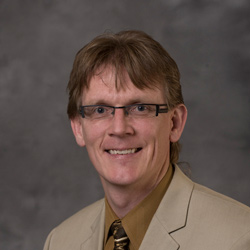
Gerhard Klimeck
"Mythbusting today’s Nanotechnology and Knowledge Transfer through nanoHUB.org"
Loeb Playhouse: 3 - 3:45 PM
Many people associate nanotechnology with a far-in-the-future technology where tiny robots will roam through our body to clean arteries or deliver drugs to a new dawn of medicine or the omnipotent control of societies that will result in doom. Few people realize that we all carry Nanotechnology in our pockets with today’s smartphones. Each of these devices supersedes the computation and visualization capabilities of $10M supercomputers or sensors from 20 years ago. 40 years of transistor miniaturization have resulted in today’s true nanotechnology where critical device dimensions are counted in number of atoms. This nanotechnology scaling has already begun to slow down and is heading for the often-falsely-predicted but now inevitable end of Moore’s law. The semiconductor industry is an innovation driver and critical national safety asset in the US and a very significant GDP component of countries like Korea and Taiwan. Does a slow-down mean doom – or will the slowdown drive diversification into new applications and markets providing a new dawn? One dawn example is a new methodology of sharing, teaching, researching, learning, and assessing in the first truly widespread end-user-oriented cloud computing platform nanoHUB.org operated by the Network for Computational Nanotechnology (https://nanohub.org/groups/ncn) at Purdue University. nanoHUB has become a US National infrastructure and serves over 330,000 users globally. This presentation will highlight how nanoHUB is busting preconceived myths on Knowledge Transfer.
Bio: Gerhard Klimeck is a professor of electrical and computer engineering at Purdue University, as well as the Director of the Network for Computational Nanotechnology and the Reilly Director of the Center for Predictive Materials and Devices. His research interests include nanoelectronic device analysis and development, high performance computing, and engineering tool development.
